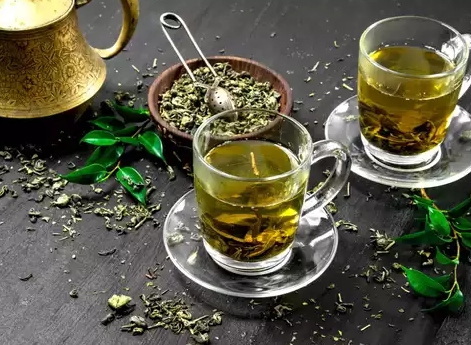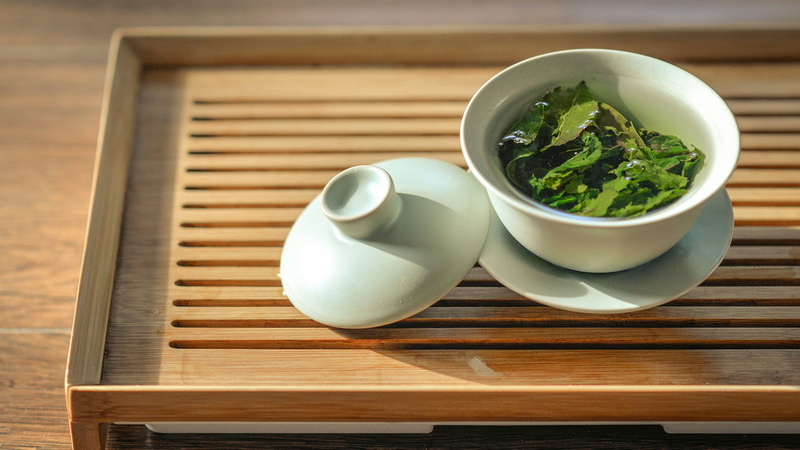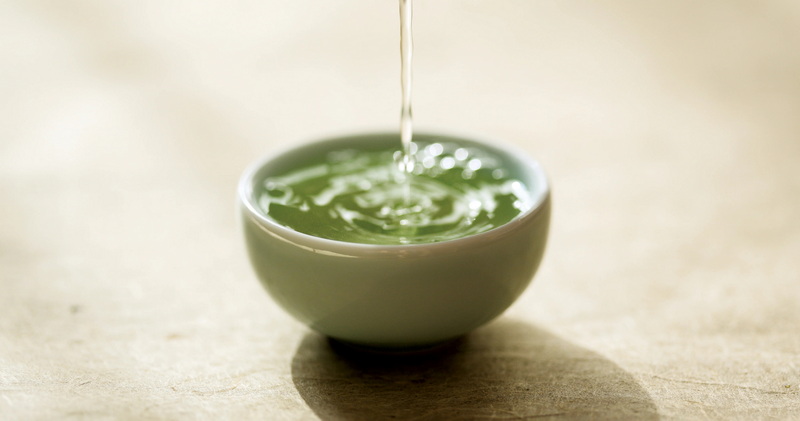Content Menu
● What is Green Tea Extract?
● The Allure of Green Tea: Benefits for Children?
● Navigating the Risks: Potential Side Effects
● Guidelines and Health Recommendations
● Safe Alternatives to Green Tea
● Conclusion
● FAQ
>> 1. Can toddlers drink green tea?
>> 2. What are the benefits of green tea for kids?
>> 3. What side effects should I watch for?
>> 4. How much green tea is safe for children?
>> 5. Are there alternatives to green tea for kids?
● Citations:
Green tea, derived from the leaves of the Camellia sinensis plant, has garnered widespread attention for its numerous health benefits among adults. However, when it comes to toddlers and young children, the safety and appropriateness of green tea extract (GTE) is a topic of considerable debate. Parents are often bombarded with information regarding the health benefits of various natural products, making it crucial to distinguish fact from fiction, especially when it comes to their children's health. This article explores the potential benefits and risks associated with green tea extract consumption in toddlers, providing parents with essential insights to make informed decisions based on scientific evidence and expert opinions.

What is Green Tea Extract?
Green tea extract is a concentrated form of green tea that encapsulates the essence of the plant's beneficial compounds. It contains high levels of polyphenols, particularly catechins, with epigallocatechin gallate (EGCG) being the most abundant and well-studied. These compounds are renowned for their antioxidant properties, which help neutralize free radicals in the body, reducing oxidative stress. GTE is often used in dietary supplements, functional foods, and even skincare products due to its purported effects on weight management, cardiovascular health, cognitive function, and cancer prevention. The extraction process typically involves steeping green tea leaves in hot water or using solvents to isolate the active compounds, followed by purification and concentration to achieve a standardized extract.
The Allure of Green Tea: Benefits for Children?
While the potential benefits of green tea are well-documented in adults, research specifically focusing on toddlers is limited. However, some potential advantages have been noted based on the broader understanding of green tea's properties:
1. Antioxidant Properties: Green tea is a powerhouse of antioxidants. These substances are vital for protecting cells from damage caused by free radicals, unstable molecules that can contribute to chronic diseases. In toddlers, whose immune systems are still developing, antioxidants can play a role in supporting overall health and cellular integrity.
2. Boosting Immunity: Green tea possesses antiviral and antibacterial properties that may aid in fighting infections. The catechins in green tea have been shown to inhibit the growth of certain bacteria and viruses, potentially reducing the incidence of common childhood illnesses like colds and flu.
3. Oral Health: Catechins in green tea can inhibit the growth of bacteria that cause cavities and bad breath. Introducing small amounts of green tea into a child's diet may contribute to better oral hygiene; however, it's essential to balance this benefit with the potential risks associated with caffeine and other compounds.
4. Cognitive Benefits: Some studies suggest that green tea can improve cognitive function and focus. While these benefits have primarily been observed in adults, they may also extend to children. The L-theanine in green tea has been shown to promote relaxation and improve attention, potentially benefiting toddlers in their learning and development.
Navigating the Risks: Potential Side Effects
Despite its benefits, there are significant concerns regarding the consumption of green tea extract by toddlers that parents must consider:
1. Caffeine Content: Green tea naturally contains caffeine, a stimulant that can have pronounced effects on young children. Caffeine can lead to hyperactivity, sleep disturbances, anxiety, and even irritability in sensitive children. The caffeine content in green tea is generally lower than in coffee but is still substantial enough to cause issues, especially for toddlers who are more susceptible to its effects.
2. Potential Liver Damage: High doses of GTE have been linked to liver damage in some studies. While these cases are rare, they highlight the importance of moderation and caution when administering green tea extract to children. Symptoms of liver damage may include jaundice (yellowing of the skin and eyes), nausea, vomiting, abdominal pain, and fatigue.
3. Iron Absorption: Green tea contains compounds that can inhibit the absorption of iron from food. Iron is crucial for growth and development, particularly for toddlers, and inadequate iron intake can lead to iron-deficiency anemia. This condition can cause fatigue, weakness, and impaired cognitive function.
4. Digestive Issues: Some toddlers may experience digestive issues, such as stomach upset or diarrhea, after consuming green tea. This is because green tea contains tannins, which can irritate the digestive tract.

Guidelines and Health Recommendations
Parents contemplating introducing green tea or its extracts into their toddler's diet should adhere to several critical precautions:
-Consult a Pediatrician: Before making any dietary changes, particularly introducing supplements or herbal remedies, it's crucial to consult with a pediatrician or a qualified healthcare provider. They can assess the child's individual health needs, consider any underlying medical conditions, and provide personalized advice based on the latest scientific evidence.
-Moderation is Key: If a pediatrician approves the use of green tea, limiting consumption to small amounts is essential. A single cup of diluted green tea may be sufficient without overwhelming the child's system. Pay close attention to the concentration of the green tea and adjust the serving size accordingly.
-Monitor Reactions: Carefully monitor the child for any adverse reactions or changes in behavior after consuming green tea. Signs of caffeine sensitivity, such as restlessness, difficulty sleeping, or increased heart rate, should prompt immediate discontinuation of the product.
-Choose Quality Products: If using green tea extract, select high-quality products from reputable manufacturers. Ensure that the product is free from contaminants and has been tested for purity and potency. Look for products that have been certified by third-party organizations to verify their quality.
-Avoid Added Sugars: Many commercial green tea products contain added sugars to enhance flavor. These sugars can contribute to tooth decay and other health problems. Opt for unsweetened varieties or add natural sweeteners, such as honey or stevia, in moderation.
Safe Alternatives to Green Tea
For parents seeking health-boosting beverages for their toddlers without the risks associated with green tea extract, consider the following safe and nutritious alternatives:
-Herbal Teas: Herbal teas, such as chamomile, rooibos, and peppermint, are caffeine-free and offer various health benefits. Chamomile tea is known for its calming properties, rooibos tea is rich in antioxidants, and peppermint tea can aid digestion.
-Fruit-Infused Water: Infusing water with fresh fruits, such as berries, citrus fruits, and cucumbers, can create a refreshing and hydrating beverage that is packed with vitamins and antioxidants.
-Vegetable Juices: Freshly made vegetable juices, such as carrot juice, beet juice, and spinach juice, are excellent sources of vitamins, minerals, and antioxidants. Be sure to dilute the juices with water to reduce their intensity and make them more palatable for toddlers.
-Smoothies: Smoothies made with fruits, vegetables, yogurt, and milk are a great way to provide toddlers with a balanced and nutritious meal or snack. Add ingredients like spinach, kale, and chia seeds to boost the nutritional content.
Conclusion
While green tea extract has been celebrated for its health benefits in adults, its safety for toddlers remains a complex issue. The potential risks associated with caffeine content, liver damage, and iron absorption warrant careful consideration and consultation with healthcare professionals. Parents should prioritize making informed decisions based on scientific evidence and expert advice, opting for safer alternatives when possible. By taking a cautious and well-informed approach, parents can ensure their toddlers receive the best possible nutrition and support for their health and development.

FAQ
1. Can toddlers drink green tea?
Yes, but only in moderation and under the guidance of a pediatrician due to caffeine content and potential side effects. It's best to dilute the tea and monitor for any adverse reactions.
2. What are the benefits of green tea for kids?
Green tea may provide antioxidants, support immunity, and promote oral health; however, these benefits must be weighed against possible risks. Consider safer alternatives that offer similar benefits without the potential drawbacks.
3. What side effects should I watch for?
Common side effects include hyperactivity, sleep issues, stomach upset, and signs of liver distress such as jaundice. If any of these symptoms occur, discontinue use and consult a healthcare provider.
4. How much green tea is safe for children?
If approved by a pediatrician, one small cup diluted with water may be acceptable; however, it's crucial to monitor for any adverse reactions. Start with a very small amount and gradually increase it if tolerated well.
5. Are there alternatives to green tea for kids?
Yes, herbal teas without caffeine or other beverages rich in antioxidants can be safer alternatives for toddlers. Examples include chamomile tea, rooibos tea, fruit-infused water, and vegetable juices.
Citations:
[1] https://www.webmd.com/vitamins/ai/ingredientmono-960/green-tea
[2] https://www.momjunction.com/articles/green-tea-for-kids_00355952/
[3] https://www.canada.ca/en/health-canada/services/food-nutrition/public-involvement-partnerships/notice-modification-list-permitted-supplemental-ingredients-permit-use-green-tea-extract-supplemental-ingredient-foods/document.html
[4] https://parenting.firstcry.com/articles/green-tea-for-kids-benefits-and-risks/
[5] https://www.urmc.rochester.edu/encyclopedia/content?contenttypeid=19&contentid=greenteaextract
[6] https://www.webmd.com/children/are-there-health-benefits-of-drinking-tea-for-kids
[7] https://www.stanfordchildrens.org/en/topic/default?id=green-tea-extract-19-GreenTeaExtract
[8] https://www.webmd.com/drugs/2/drug-76714/green-tea-leaf-extract-oral/details






























